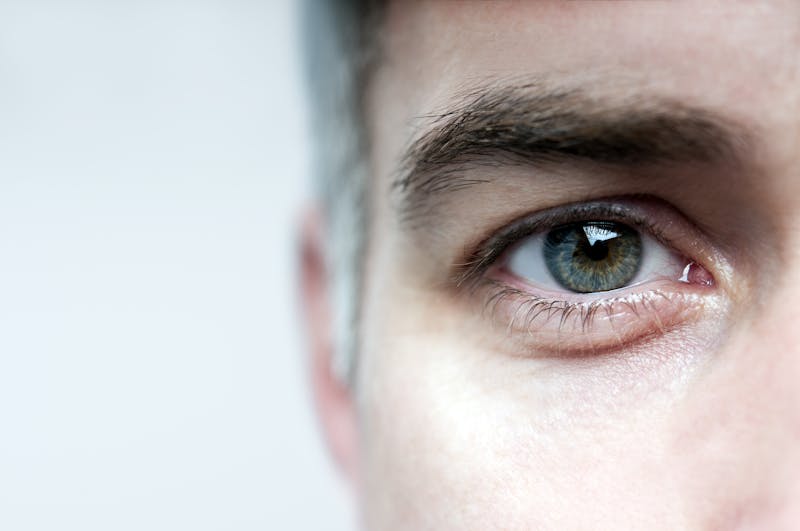
Glaucoma is a well-known eye disease that has the potential to cause vision impairment or blindness. There are an array of treatments that can prevent glaucoma from progressing. However, early detection is critical. In this blog, our team at Kelly Vision in NYC and Long Island discusses potential procedures for addressing glaucoma and whether or not the disease can actually be cured.
What Is Glaucoma?
Glaucoma impacts the optic nerve and is the second leading cause of blindness across the globe. If the condition is not caught early, it can lead to significant damage and vision loss. While glaucoma can be found in people of all ages, it is most commonly detected in those over 55.
Risk factors for glaucoma include:
- A family history of the disease
- Severe nearsightedness or farsightedness
- Previous eye injuries
- A history of eye surgeries
- Health conditions such as diabetes
- Thin corneal tissue
- Chronic use of corticosteroid eye drops
Symptoms of Glaucoma
During the early stages of glaucoma, patients may not notice any symptoms. However, with time, optic nerve damage gradually leads to loss of vision and eventually blindness. Some of the first signs of glaucoma include peripheral vision blind spots that look like blank patches. As the disease progresses, it becomes more and more difficult to see objects in the central area of vision as well.
Certain types of glaucoma may come on suddenly and cause acute vision problems. One is called acute angle-closure glaucoma, and it requires immediate medical attention. Symptoms of this type of glaucoma entail the following:
- Throbbing headache
- Significant eye pain
- Nausea or vomiting
- Blurred vision
- Seeing halos around lights
Is It Possible to Cure Glaucoma?
Unfortunately, there is no known cure for glaucoma, and once damage has resulted in vision impairment, there is no way to repair the ocular nerve. However, there are a range of perpetual treatments that are known to slow the disease’s progress and minimize the risk of vision loss and blindness for those in the early stages.
Below are some of the most common treatment options:
Prescription Eye Drops
Prescription eye drops may be able to lower the pressure inside the eyes and enhance fluid drainage. Other medications may be able to slow fluid production, which also decreases intraocular pressure. A combination of prescription eye drops may produce the best outcome.
Oral Medications
Certain oral medications can be taken that minimize fluids in the eyes. These can be taken in combination with prescription eye drops for best results.
Laser Therapy
Developments in modern laser technology can be harnessed to help fight glaucoma. A trabeculoplasty procedure can be performed to optimize eye drainage for patients with open-angle glaucoma. During the in-office procedure, a small laser is utilized to boost drainage at the juncture where the iris and cornea converge. It can take around 4-6 weeks after the procedure to know whether it has had a positive impact. Patients may need to continue medications and eye drops after laser therapy.
Surgery
In addition to laser therapy, certain surgeries may be effective in enhancing intraocular drainage. Surgical trabeculoplasty mimics laser trabeculoplasty and can be a viable choice to slow down the disease’s progression. Your surgeon can also perform a procedure where small tubes (shunts) are placed inside the eyes to maximize drainage.
Early Detection of Glaucoma Is Key
In general, there is no way to prevent or cure glaucoma. However, you can work to avoid the disease when it occurs as a complication of other health issues, such as hypertension or diabetes. You can do this by adhering to a healthy lifestyle, managing your weight, staying physically active, and avoiding smoking and alcohol.
Undergoing regular eye exams is critical when it comes to early detection of eye disease. Your doctor will test your intraocular pressure and review your inner eye structures during your routine check-ups. These exams may be able to pinpoint glaucoma before it ever causes a single symptom. Beginning treatment early has the potential to prevent future vision loss.
Want to Learn More About Diagnosing and Treating Glaucoma in NYC, NJ, and Long Island? Reach Out to Kelly Vision Today to Book a Private Consultation
At Kelly Vision, our skilled NYC and Long Island ophthalmologists, Dr. James Kelly and Dr. Ashley Brissette, provide a seamless treatment experience and a compassionate, personalized approach to care. If you would like to come in for an eye exam, please contact us today to book a private consultation and assessment.


